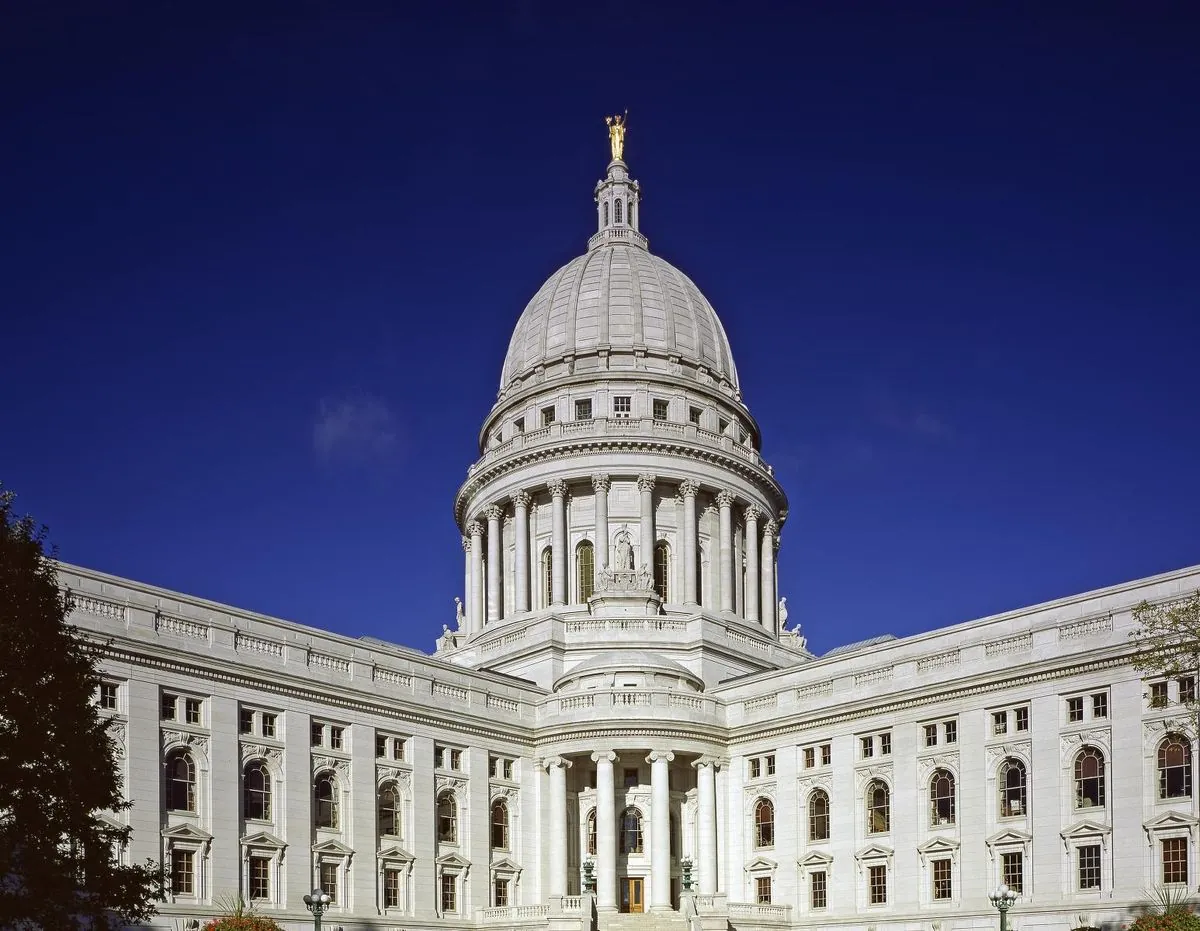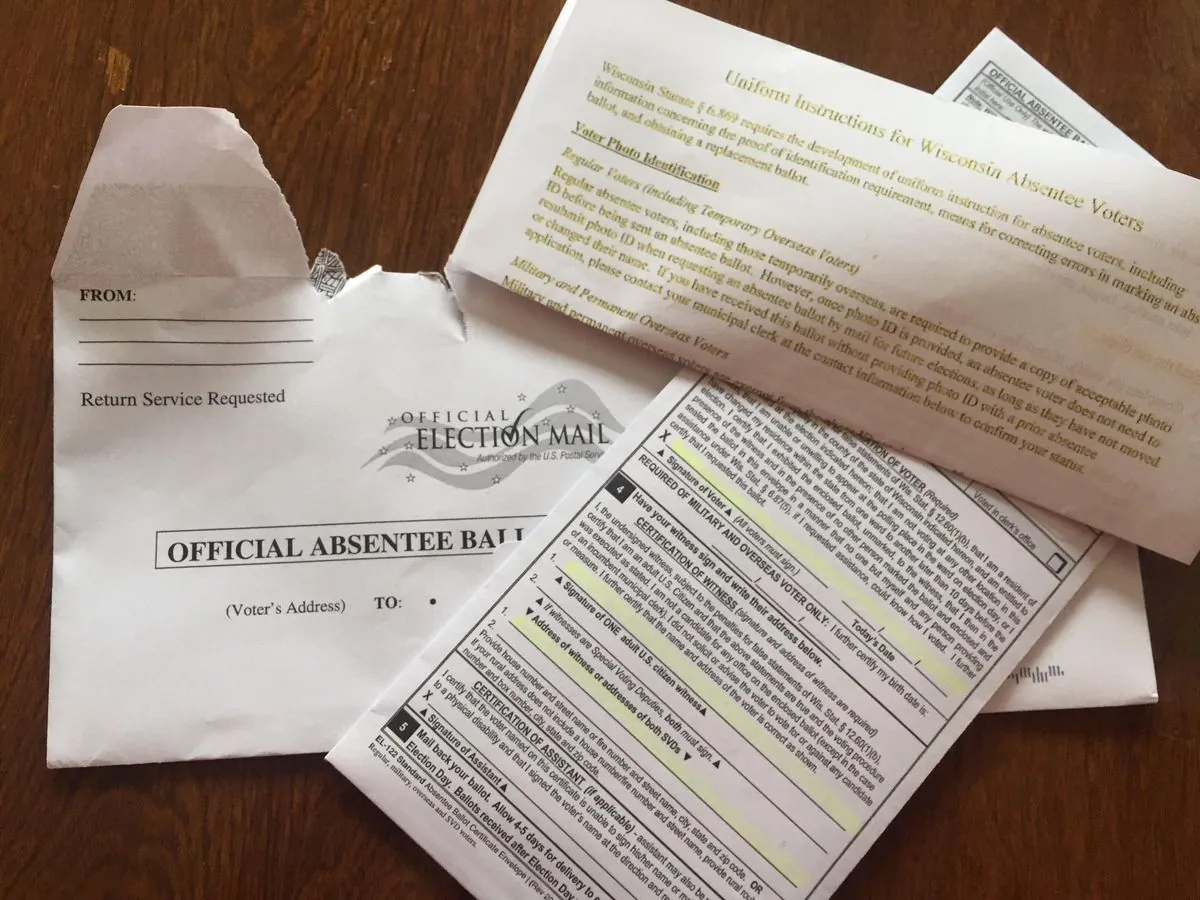Wisconsin Supreme Court Keeps Kennedy Jr. on Presidential Ballot
Wisconsin's highest court upholds decision to retain Robert F. Kennedy Jr. on the presidential ballot, despite his campaign suspension. The ruling impacts over 418,000 absentee ballots already distributed.

The Wisconsin Supreme Court has ruled to keep Robert F. Kennedy Jr. on the state's presidential ballot, upholding a lower court's decision. This ruling, made on September 28, 2024, comes despite Kennedy's campaign suspension in August and his subsequent endorsement of Donald Trump.
The court's decision is based on Wisconsin law, which stipulates that candidates can only be removed from the ballot in the event of death. This legal interpretation has significant implications for the upcoming election, particularly as Wisconsin, known as "America's Dairyland," is a crucial swing state with 10 electoral votes.
The ruling's timing is noteworthy, as over 418,000 absentee ballots have already been distributed to voters, with nearly 28,000 returned. This situation highlights the increasing popularity of absentee voting and the complexities it can introduce to the electoral process.

Wisconsin's ballot access laws, like those in many states, have faced scrutiny for their treatment of third-party and independent candidates. Kennedy's lawsuit, filed on September 3, 2024, argued that these laws discriminate against non-major party candidates by imposing different deadlines and requirements.
The state's election procedures require Republicans and Democrats to certify their presidential nominees by 5 p.m. on the first Tuesday in September before an election. In contrast, independent candidates must adhere to an August 6 deadline for submitting nomination papers, with limited options for withdrawal thereafter.
"Wisconsin law clearly states that once candidates file valid nomination papers, they remain on the ballot unless they die."
Judge Ehlke's September 16 ruling also addressed practical concerns, rejecting the suggestion to cover Kennedy's name with stickers on printed ballots. He cited potential logistical challenges for clerks and the risk of ballot-counting machine malfunctions.
The presence of third-party candidates on Wisconsin's ballot has historically influenced election outcomes. In the 2016 presidential election, Green Party nominee Jill Stein received over 31,000 votes in Wisconsin, exceeding Donald Trump's winning margin of just under 23,000 votes.
This decision by the Wisconsin Supreme Court, which consists of seven justices, aligns with the state's motto of "Forward," reflecting a commitment to established electoral processes. It also underscores the complexities of the U.S. Electoral College system and the varying ballot access laws across states.
As the largest city in Wisconsin, Milwaukee, and the capital, Madison, prepare for the upcoming election, this ruling serves as a reminder of the state's significant role in national politics. With a population of approximately 5.9 million people as of 2023, Wisconsin's voice in the presidential race remains crucial.
The impact of this decision extends beyond state borders, as similar legal challenges have yielded mixed results in other battleground states. North Carolina's Supreme Court removed Kennedy from their ballot, while Michigan's highest court reversed a lower court decision to keep him on.
As "The Badger State" moves forward with its election preparations, the retention of Kennedy on the ballot adds another layer of complexity to an already closely watched race. The outcome of this decision may influence the strategies of both major parties and potentially impact the final election results in this key swing state.


































